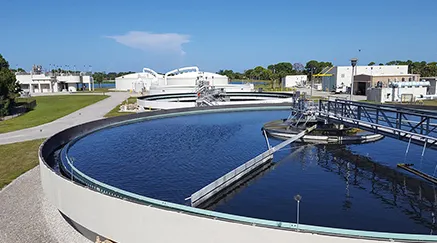-
 Phone:
Phone: -
 Email:
Email:

Innovative Solutions in Baling Wire Manufacturing for Sustainable Industry Practices Today
The Baling Wire Factory An Indispensable Component in Modern Industry
In the world of manufacturing and recycling, the production of baling wire plays a pivotal role. A baling wire factory, dedicated to producing various types of baling wire, serves as an essential component for numerous industries, ranging from agriculture to waste management. This article explores the significance, processes, and innovations associated with baling wire factories.
Understanding Baling Wire
Baling wire is a sturdy and versatile wire primarily used for bundling materials together, often in bales. Its applications are extensive; it is commonly used in agriculture for binding hay and straw, in recycling for compressing materials like paper and plastics, and in construction for securing insulation and other items. The strength and flexibility of baling wire ensure that it can withstand significant pressure while maintaining its integrity.
The Manufacturing Process
The production of baling wire involves several key processes, starting with the selection of high-quality raw materials. Typically made from steel or stainless steel, the wire undergoes a series of processing steps. First, the metal is drawn into thin wires through a series of dies, a process known as wire drawing. This step ensures that the wire achieves the desired diameter and tensile strength.
Once the wire is drawn, it may undergo heat treatment to enhance its toughness and flexibility. This is particularly important for baling wire, which must bear the weight of the materials it binds without breaking. After the heat treatment, the wire is coated, often with a layer of plastic or a similar substance, to provide corrosion resistance, thus extending its lifespan in various environments.
The final steps of production involve winding the wire into coils, which are then cut into specific lengths according to industry requirements. Quality control is paramount throughout the manufacturing process, ensuring that the finished product meets the necessary standards for strength and reliability.
baling wire factory

Innovations and Sustainability
As industries evolve, so do the demands placed on baling wire factories. One significant trend is the growing emphasis on sustainability. More manufacturers are seeking eco-friendly alternatives and methods to reduce waste in their production processes. This includes using recycled materials in the manufacturing of baling wire and implementing energy-efficient practices throughout the factory.
Moreover, advancements in technology have revolutionized the way baling wire is produced. Automation and robotics have improved the efficiency of manufacturing processes, reducing labor costs and minimizing human error. Furthermore, smart manufacturing techniques allow for real-time monitoring of production lines, enabling factories to quickly adapt to changing demands and optimize resource usage.
The Role of Baling Wire in the Economy
Baling wire factories play a critical role in the economy by supporting various sectors that rely on effective bundling solutions. In agriculture, farmers rely on durable baling wire for harvesting and storing their crops, ensuring they remain intact during transport and storage. In the recycling industry, baling wire is essential for compacting materials, making them easier to transport and process. This functionality directly supports the recycling efforts that are crucial for environmental sustainability.
Conclusion
The baling wire factory is far more than just a production facility; it is a cornerstone of multiple industries vital to the global economy. By ensuring the availability of high-quality baling wire, these factories facilitate agricultural efficiency, contribute to sustainable recycling practices, and support the broader industrial landscape. As technology and environmental considerations continue to evolve, the baling wire factory will undoubtedly adapt, remaining an integral part of the manufacturing ecosystem. The future holds promising innovations that will enhance production processes and sustainability efforts within this essential industry.
-
Wire Mesh for Every Need: A Practical SolutionNewsJul.25,2025
-
Steel Fences: Durable, Secure, and Stylish OptionsNewsJul.25,2025
-
Roll Top Fencing: A Smart Solution for Safety and SecurityNewsJul.25,2025
-
Cattle Farm Fencing Solutions for Maximum SecurityNewsJul.25,2025
-
Affordable Iron Binding Wire SolutionsNewsJul.25,2025
-
Affordable Galvanized Wire SolutionsNewsJul.25,2025
-
Wire Hanger Recycling IdeasNewsJul.25,2025








